Cost-Effective Interconnects for Autoclaved Medical Devices

The meDical market is becoming more and more impacted by influences of emerging marketing trends including expanding global markets, where products must be made to meet the economic and supply needs of the local area; aging populations, which drive the need for increasing availability of high-quality and affordable medical devices; and the trend toward reusing products, where possible, addressing the growing issue of waste and limitations on recycling.
Problem
In some cases, where reusing medical products increases the risk of spreading disease, it is still desirable to have low-cost, reliable, but disposable devices that can be used on one patient and then disposed of. However, because of the trend of hospitals and clinicians to factor in cost and waste concerns, it is becoming more critical to minimize the disposable portion to as small a piece of the medical device system as possible, with the remainder of the system being reusable as much as it is feasible.
A perfect example is the disposable catheters used in electrophysiology. This is a minimally invasive procedure that maps and treats arrhythmias by feeding the catheter through a small incision(typically in the groin area) into a blood vessel to the heart, allowing quicker patient recovery, with fewer complications, than traditional open-heart methods. The catheters themselves are often single-use devices that are not reused between patients.
The extension cables connecting these catheters to the system traverse the border between the sterile field (where the patient is) and the external system, which is in an unsterile area away from the patient. These cables are typically reused, which reduces the costs of each procedure, but they must be sterilized between patients.
A leading medical device manufacturer was recently looking for an alternative to standard high-cost autoclave-compatible connector offerings for a new range of electrophysiology catheters it was developing. Key connector requirements were small size, ease of use, ruggedness, and resistance to autoclave sterilization, in a package accommodating multiple contacts and ensuring signal reliability from the external system through the extension cable, to the tip of the catheter, and back.
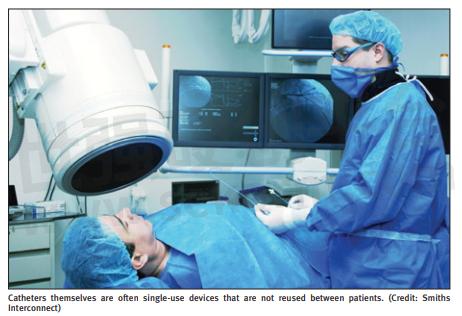
Requirements
There are many connector options for autoclavable connectors, but this device maker required additional features, such as low mating forces and low contact resistance, in a package that would be easy and intuitive for medical personnel to use while focusing their attention on the procedure and patient care. Multiple paths were explored, including the development of a custom connector, but the existing Smiths Interconnect circular plastic D Series met many of the requirements within the current package(easy to use, rugged, and reliable, in a form factor, which easily integrates into the application). However, the current solution would not survive autoclaving. A review was conducted to evaluate all features and the required application specifications. The existing solution utilized hyperboloid contacts, providing compliance with device electrical requirements (high cycle life for the system side receptacle/low contact resistance) and the durability and reliability to survive the harsh chemicals and temperatures associated with the required sterilization processes. The system-side panel mount receptacle contained the hyperboloid contacts while the cost-effective plug used male pins to ensure longer device life and an affordable cable solution. The existing high-strength polymer, used for the plug and receptacle and widely accepted within the medical industry for decades, was evaluated against alternative materials for ease of use, availability, chemical resistance, and mechanical robustness, as well as the ability to maintain the same features and aesthetics of the original materials.
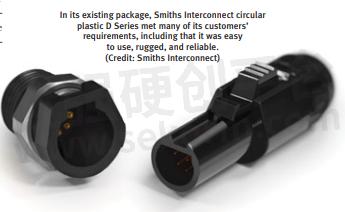
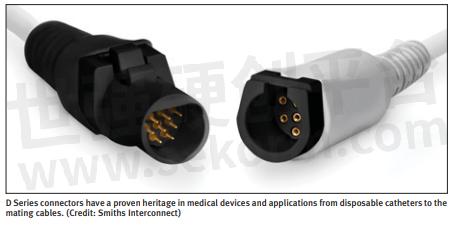
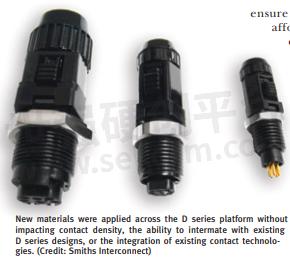

Solution
Ultimately, polyetherimide was chosen as the replacement material for all plastic components. Connectors utilizing the new material were then built and subjected to autoclave, electrical, and mechanical testing to ensure survivability and consistent electrical properties before and after testing. The tests included 20 prevacuum autoclave cycles at 135℃ for four minutes each, then the connectors were mated and unmated 200 times to ensure that no substantialchanges in performance had occurred. Finally, the dielectric withstanding voltage was measured on each tested connector pair, confirming that the insulators continued to meet the design specification. At the end of the testing, the new connectors functioned without any noticeable impact on mechanical or electrical performance.
By performing a material analysis and selecting the correct polymer, the features of the existing D series connectors; high mating cycle life on the system side that increases the MTBF (mean time between failures), a simple, userfriendly, push-button latching system that ensures that the connectors stay dependably mated during the procedure, and low mating and dematingforces were maintained. Additionally, new benefits emerged, including high temperature resistance, improved -chanical properties, lower water absorption, and improved chemical resistance to harsh environments and sterilization protocols (including steam autoclaving), all critical to address emerging trends in today’s medical market and needed for the customer’s application.
This solution was also economical since new materials could be applied to the D series platform (which is available in three standard sizes) without impacting contact density, the ability to littermate with existing D series designs, or the integration of existing contact technologies, including crimp and pokecontacts for automation and reduced assembly time. This allowed for a mix of disposable and reusable solutions in the same family, which afforded the customer flexibility to integrate reusable receptacles with disposable and reusable plugs for the same system, or any other combination, depending on their applications.
For many years, D Series connectors have a proven heritage in medical devices and applications used globally; from disposable catheters to the mating cables, to bedside patient monitors,patient-worn therapeutic devices, and rugged automatic external defibrillators, which are critical to first responders. They have now been updated to meet the market requirements for reusability and sterilization in both manufacturing and hospital settings by implementing a new material without affecting existing key features critical to previous applications of the product or reducing their cost effectiveness.
Company Description
Smiths Interconnect is a leading provider of technically differentiated electronic components, subsystems, microwave and radio frequency products that connect, protect, and control critical applications in the commercial aviation, defense, space, medical, rail, semiconductor test, wireless telecommunications, and industrial markets.
Smiths Interconnect has 25 Sales, R&D, and Manufacturing locations in 12 countries, including Canada, the US (California, Florida, Massachusetts, Kansas, and Maryland), Mexico, CostaRica, France, Germany, Italy, UK, Tunisia, India, China, and Singapore.
Smiths Interconnect is part of Smiths Group, a global leader in applying advanced technologies for markets in threat and contraband detection, energy, medical devices, communications, and engineered components. Smiths Group employs around 22,000 people in more than 50 countries.
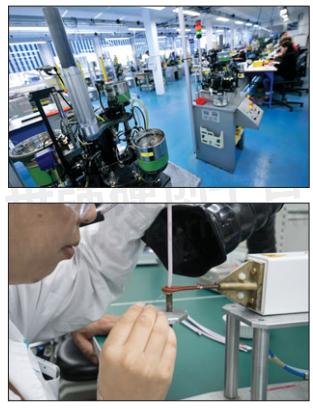
Target Markets
Medical, Rail, Industrial, Aerospace, Space, Defense, Semiconductor Test
Products/Services Offered
Smiths Interconnect offers proven quality and innovative connectivity solutions, constantly adapting our products to tomorrow’s needs while meeting our customers’ requirements. We leverage our application-specific expertise to design and manufacture superior RF components, connectors, interposers cable assemblies that ensure optimal performance, durability, and safety.
Specifically supporting Surgical & Monitoring Systems, Imaging Systems, and Disposables, SmithsInterconnect medical product solutions feature spring probes andHypertac® hyperbo -loid contacts among the leading-edge technologies.
Medical products include Auto clav D Series Con -nectors, Hyper Grip®Circular Connectors, Eclipta Edge-Card Connectors, and MRI Cable Assemblies.

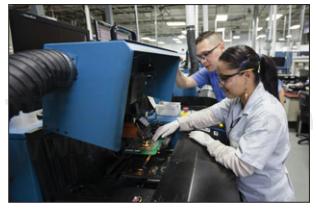
- +1 Like
- Add to Favorites
Recommend
- How Smiths Interconnect Keeps The Medical World Connected
- Smiths Interconnect Acquires Reflex Photonics to Expand in High Speed Data Transmission Market
- Smiths Interconnect Expands into Burn-In Test Market with Acquisition of Plastronics
- Smiths Interconnect Expanded RF Filter Capability for European and Asian Markets
- Smiths Interconnect’s cPCI launched on NASA Mars Perseverance Rover – Interconnect Product of the Year
- Smiths Interconnect NXS Series, New Ultra-High Density, Space Qualified Interconnect
- Smiths Interconnect Deliver A New Highly Integrated Multi-channel Subsystem
- Smiths Interconnect Launches K-band Passive Components for Space Applications
This document is provided by Sekorm Platform for VIP exclusive service. The copyright is owned by Sekorm. Without authorization, any medias, websites or individual are not allowed to reprint. When authorizing the reprint, the link of www.sekorm.com must be indicated.






























































































































































































































































































































































































































































































































































































































































































































































































































